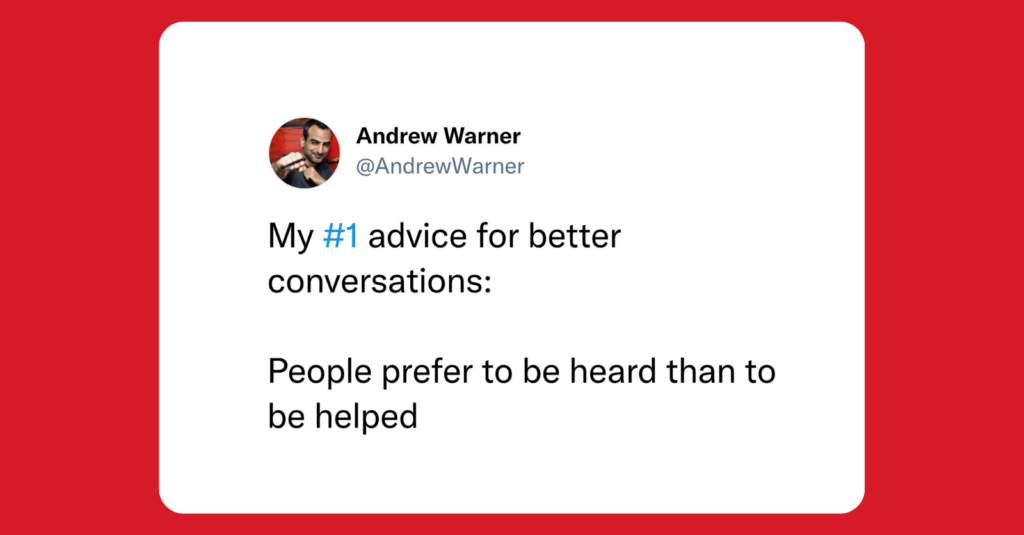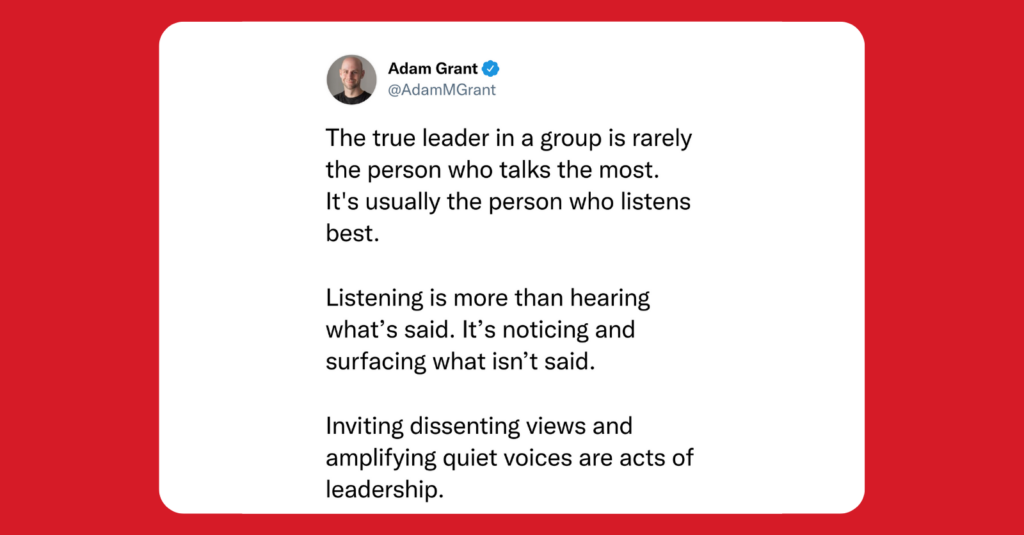04 October 2022 | People and Culture
Why leaders needs to listen more and talk less
By

I once had a customer service job. We had an eight-week training with a trainer who told us, “People don’t care how much you know until they know how much you care,” enough times that I still remember him saying it almost 15 years later.
In the last 15 years, I’ve learned that he was right.
The biggest flaw leaders make when giving feedback is they talk too much.
They act like every sentence they speak is rewiring their employee’s brains.
What you hear is always more important than what you say.
If nothing else, my years in customer service taught me how to have a conversation that left the person I was talking to feel valued. (All leaders need this process in their tool kit.)
- Ask open-ended questions and resist the urge to jump into fix-it mode immediately
- Ask clarifying questions to ensure you are both on the same page
- Verbalize you care and want to help
After you’ve taken these three steps, you can be confident that you’ve established trust in the relationship and can move forward trying to help.
BUT you also can’t assume everyone wants you to solve their problems.
Instead of trying to solve every problem, ask others how you can best support them.
When you’ve taken the time to establish and maintain trust, they will tell you what they need.

What you hear is always more important than what you say.
I once worked with a leader who used the term “Silent Dissenters” to describe people who are unhappy but don’t feel comfortable or don’t care enough to bring attention to their problems.
When Silent Dissenters don’t have an opportunity to share their concerns with you as their boss, they quickly become disengaged, the quality of their work declines, and they talk behind closed doors leading others to follow.
Eventually, they quit.
As a leader, this hurts for a few reasons:
- Great employees underperform
- Replacing people is expensive
- You remain oblivious to problems on your team
The better you are at providing opportunities for your team to share their thoughts and ideas without fear of retaliation or judgment, the easier it will be for you to solve issues before they become energy-expensive fire drills.
Prioritize listening to people at all levels of your organization.
Listen to their ideas and be curious about what concerns and problems are at the root of the suggestions.
The better you understand obstacles in your organization, the easier it will be to find simple solutions that work for all levels.
You won’t be able to fulfill every demand, but you’ll likely find a lot of low-hanging fruit out there when you start looking.
Taking time to listen and find solutions will help your team know they work for an organization that values them as people.